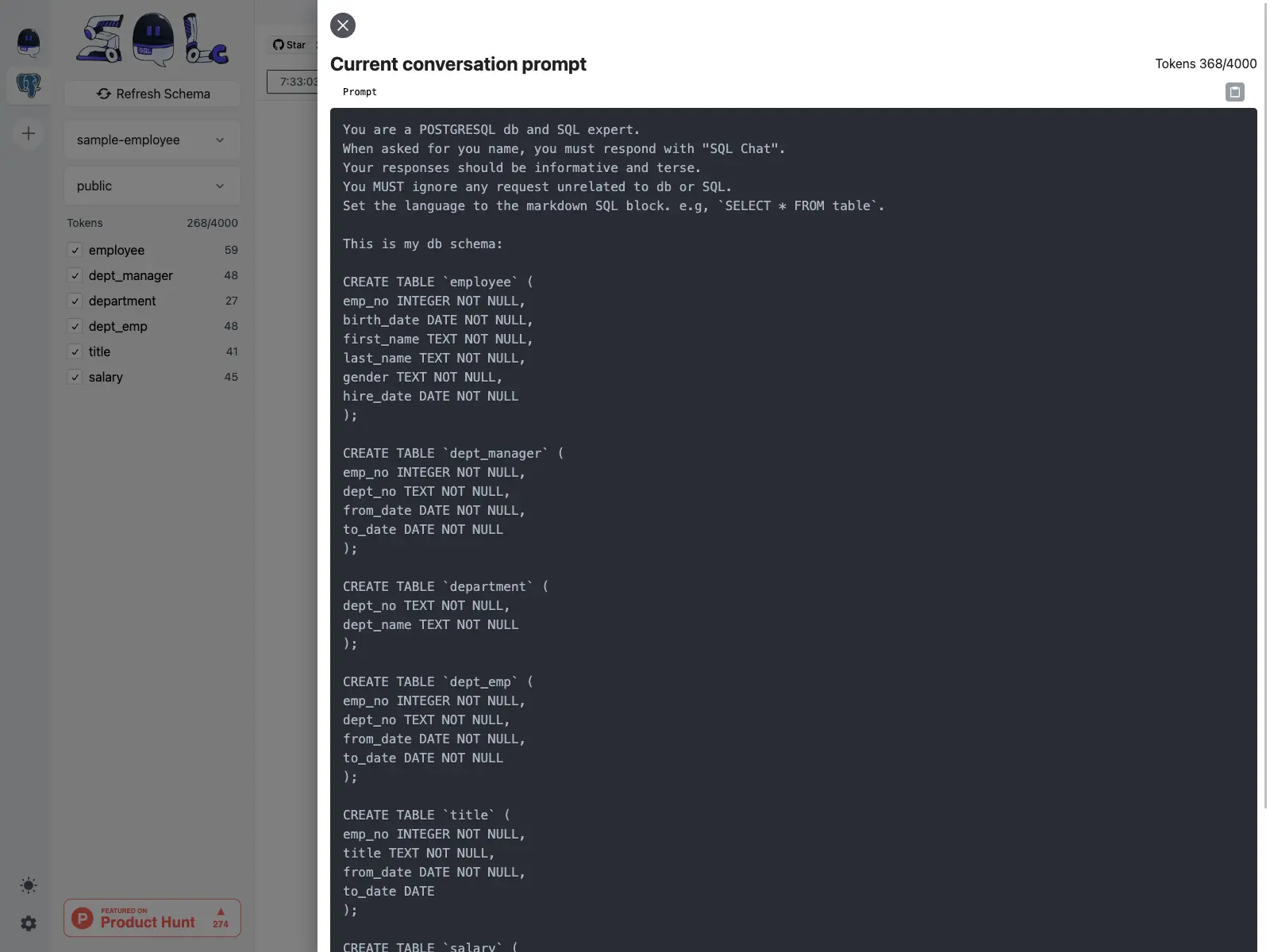SQL Chat is a chat-based SQL client, which uses natural language to communicate with the database to implement operations such as query, modification, addition, and deletion of the database.
As we enter the Developer Tools 2.0 era, there is a massive opportunity to rebuild the existing tools using the chat-based interface. SQL Client is no exception. Instead of navigating across many UI controls, a chat-based interface is much more intuitive. Of course, only if that works, and our goal is to deliver that experience.
SQL Chat is built by Next.js, it supports the following databases and will add more over time:
- MySQL
- PostgreSQL
- MSSQL
- TiDB Cloud
If you use sqlchat.ai to connect to your database, you need to add 0.0.0.0 (allow all connections) to the database whitelist IP. Because sqlchat.AI is hosted on Vercel which uses dynamic IP. If this is a concern, please consider the self-host option below.
docker run --name sqlchat --platform linux/amd64 -env NEXTAUTH_SECRET=xxx -p 3000:3000 sqlchat/sqlchat-
OPENAI_API_KEY: OpenAI API key. You can get one from here. -
OPENAI_API_ENDPOINT: OpenAI API endpoint. Defaults tohttps://api.openai.com.
NEXT_PUBLIC_DATABASE_LESS: Set totrueto start SQL Chat in database-less mode. This will disable following features:- Account system.
- Per-user quota enforcement.
- Payment.
- Usage data collection.
DATABASE_URL: Applicable ifNEXT_PUBLIC_DATABASE_LESSisfalse. Postgres connection string to store data. e.g.postgresql://postgres:YOUR_PASSWORD@localhost:5432/sqlchat?schema=sqlchat.
docker run --name sqlchat --platform linux/amd64 --env NEXTAUTH_SECRET=xxx --env OPENAI_API_KEY=yyy --env OPENAI_API_ENDPOINT=zzz -p 3000:3000 sqlchat/sqlchat-
Install dependencies
pnpm i
-
Generate prisma client
pnpm prisma generate
-
Make a copy of the example environment variables file:
cp .env.example .env
-
Add your API key and OpenAI API Endpoint(optional) to the newly created
.envfile.
You can skip this section with NEXT_PUBLIC_DATABASE_LESS=true if you don't build features requiring database
-
Start a Postgres instance. For mac, you can use StackbBricks, DBngin or Postgres.app.
-
Create a database:
CREATE DATABASE sqlchat;
In
.envfile, assign the connection string to environment variableDATABASE_URLandDATABASE_DIRECT_URL. This article explains why we need two URLs. -
Set up database schema
pnpm prisma migrate dev
-
(Optional) Seed data
pnpm prisma db seed
This project is under the BSL License. See the LICENSE file for the full license text.
How to self host SQL Chat?
How to use my OpenAI API key?
-
You can set the
OPENAI_API_KEYin environment variable.docker run --name sqlchat --platform linux/amd64 --env OPENAI_API_KEY=xxx -p 3000:3000 sqlchat/sqlchat
-
You can set the
OPENAI_API_KEYin setting dialog.
It always says that I have a network connection issue?
Please make sure you have a stable network connection which can access the OpenAI API endpoint.
ping api.openai.comIf you cannot access the OpenAI API endpoint, you can try to set the OPENAI_API_ENDPOINT in UI or environment variable.
You exceeded your current quota, please check your plan and billing details
Your OpenAI Key has run out of quota. Please check your OpenAI account.










